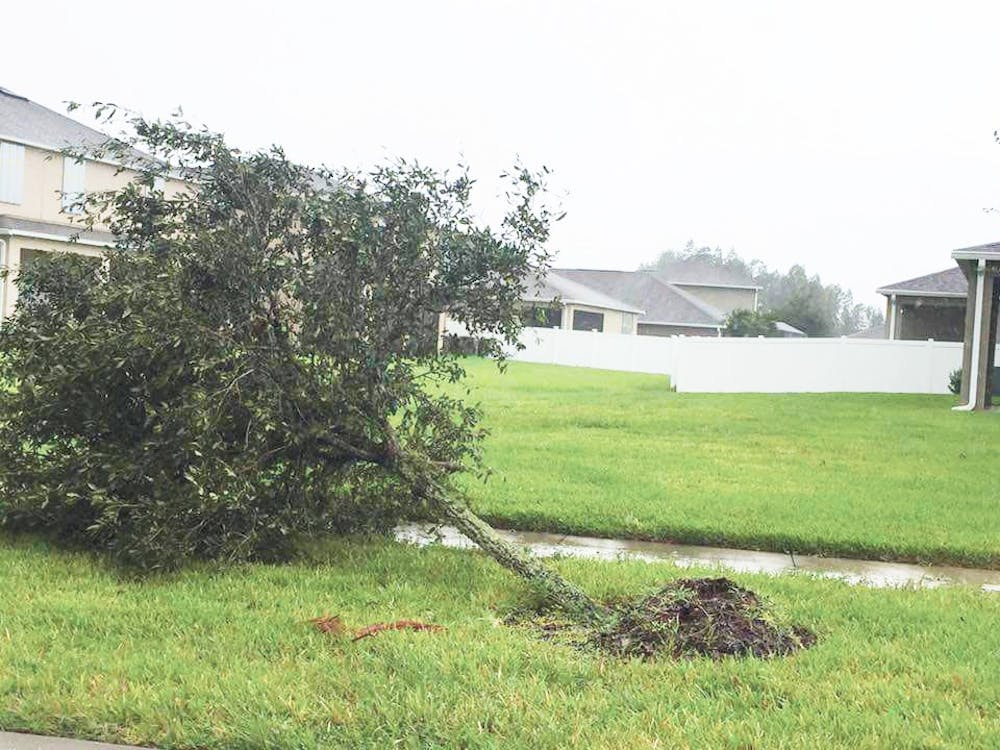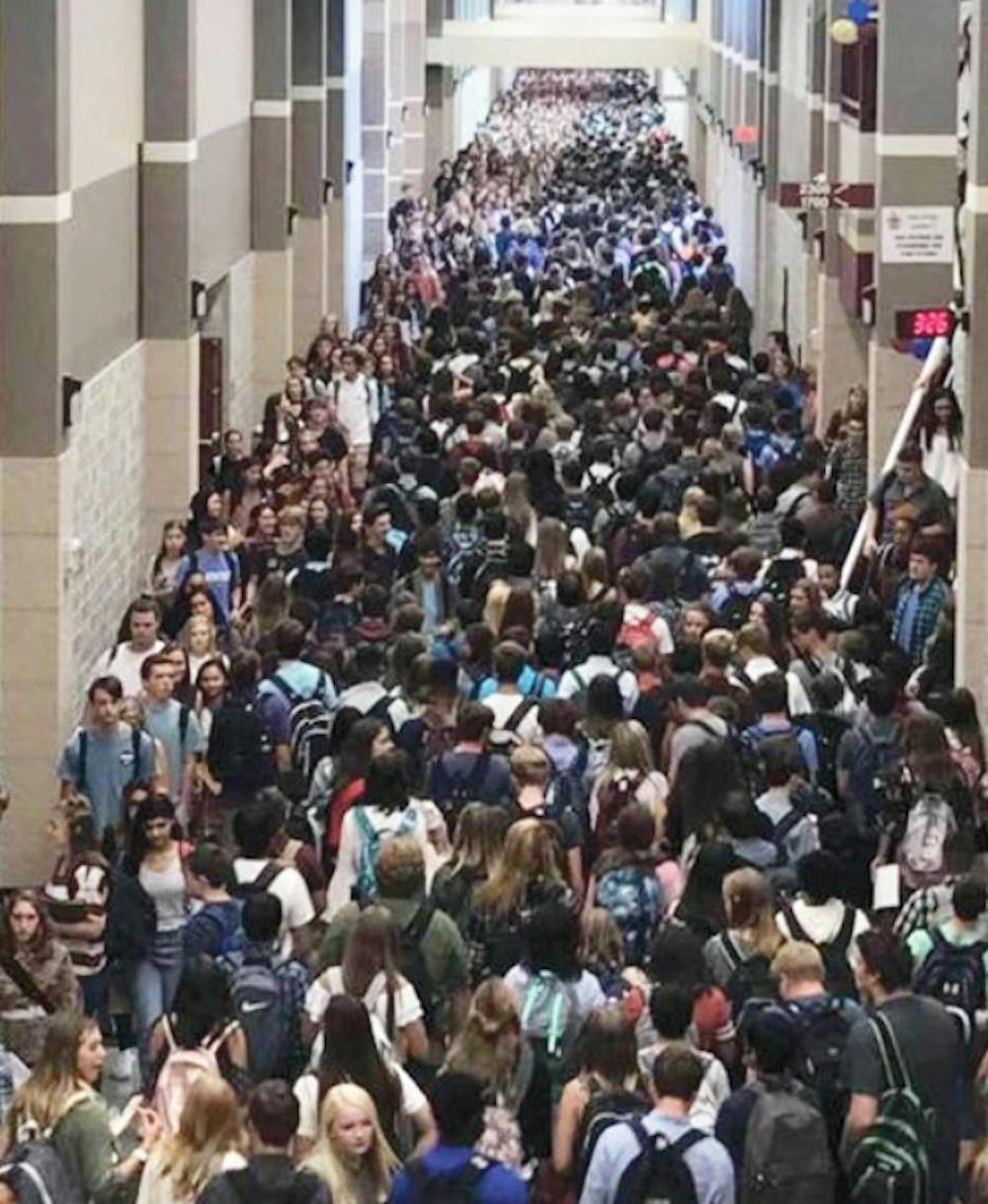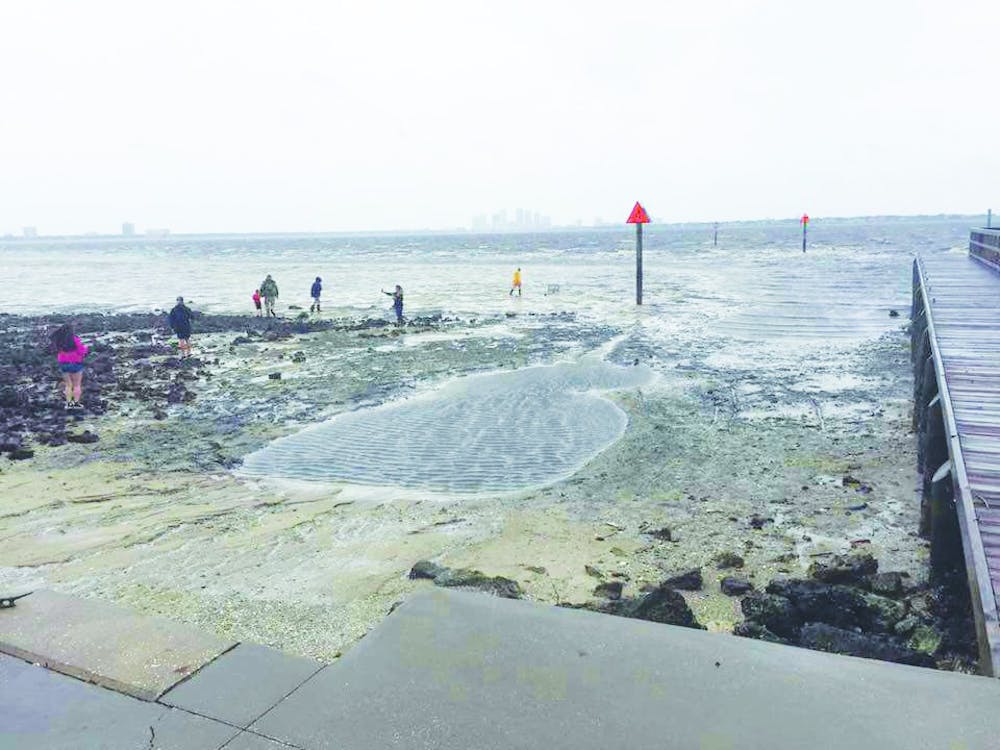Judy Sutherland -
"There's no word from my nephew. He's basically working around the clock."Cheryl Martens -
"The hurricane hit our area as a category two. The winds were loud and a little scary at times throughout much of the night, but it was much less severe than anticipated, and for that we are very grateful."
Ruth Martens -
"It was scary. It was nerve-wracking, especially after dark when we couldn't see what was going on. And of course, that's when the worst part of the storm hit. And it was frustrating because a hurricane is totally unpredictable and constantly changes course. About half of our county is without power. Our lights flickered about a dozen times, but we never lost power. Irma changed course and went through Lakeland rather than Tampa, which was good for us. It put us on the outer bands rather than the eye wall. We were prepared to lose two trees, our roof, solar panels, and the screen enclosure. But God is good and we only lost one section of screen. It's still raining and very windy but nothing compared to yesterday."Chrishauna Curry, sophomore -
"Irma was headed straight to the Inauga, an island in the Bahamas before it suddenly turned further east where the impact of the hurricane was not as severe. I was very worried and not having support made it feel even worse. It was hard to focus on school knowing my island could've been wiped out. It was really hard because I was constantly thinking about them and telling them to leave. She didn't really know what was going on because it wasn't really mentioned on the news.My family had a choice to evacuate. Majority of them evacuated North, to the capital city of Nassau, but my mom stayed. The house and my mom are fine. There were significant damages to my high school. My mom wasn't taking it seriously. This is the strongest hurricane in the atlantic ocean, ever. It's the equivalent of an earthquake.
I didn't receive much comfort from Taylor because all the prayers were directed to Florida. I received comfort from certain profs, friends, and OIP family and of course, Bahamians. When we pray for our states, also pray for students in the Caribbean. Specifically chapel, we were told to pray for Florida, while Bahamian students weren't acknowledged. A lot of students aren't aware of the calamities occurring in the Caribbean.
There are a few islands, Acklins and Ragged Island, in the Bahamas that are now uninhabitable because of damages.
It's troubling in the way that it intrudes my mind. It made me anxious, gave me a difficult time sleeping. The word that keeps coming to my mind is worried. It was a very worrying experience. It was so horrifying that it was surreal, because I wasn't home to really know what was going on. I was thinking to myself, "What is there to do?". I remember I found out how serious it was in a group chat two days before the hurricane passed. A friend messaged, "Attention everybody, get your stuff. We need to evacuate Inagua." There was even debates about where they would evacuate to in the group chat.
Over half of the island evacuated."
Dr. Eric Hernandez, Assistant Professor of Accounting -
"All of my family lives in Houston, and our three kids were born there, so we consider Houston home. Houston is the 4th largest city in the US. It is a resilient city, and extremely diverse, ethnically and economically full of hard working and friendly people. Even on the highways we take turns when merging, and at the bus-stops downtown, you will see people politely cue up unprompted as they wait for the bus.We are used to floods, and indeed, people and businesses prepare for hurricane season with contingency plans, water and non-perishable supplies in their garages. Businesses run drills, and decide ahead of time their response including who evacuates and who is critical during the emergency. But we have not seen anything like this in recent memory.
Our daughter Isabel was months old when we decided to evacuate for Rita, the whole city was psyched a few weeks after seeing what Katrina did in New Orleans nearby. A 3.5 hour drive to Dallas turned into 18 hours on the highway for us, and others spent much longer time on shorter distance evacuation trips. Seeing this time how the highways were underwater, I have no doubt that they would have become drowning traps for people stuck in traffic trying to evacuate, so I am glad that didn't happen.
Harvey was very democratic. It hit people in every walk of life, and neighborhoods of all socioeconomic categories. My family lives in a suburb named Kingwood. None of their houses were flooded, but literally houses and buildings blocks away from them were underwater. Our library, our high school and grocery store, only blocks away were destroyed. To put it in perspective, it is as if the Mississinewa flooded and buildings as far as Reade are underwater but others such as the dining commons aren't . I suppose small variations in elevation made a big difference.

Either way, the response of the people of Houston, helping each other in the midst of the storm, risking their lives for others and making room for each other in the aftermath is inspiring. People helping neighbors or complete strangers clean up their homes of precious but destroyed belongings was widespread. We have friends whose homes were destroyed and other friends who opened their home(s) to them for an indefinite length of time. A nearby high school opened their doors to ours, crowding Kingwood High students along with them. More than ever we are proud to call ourselves Houstonians." #houstonstrong





